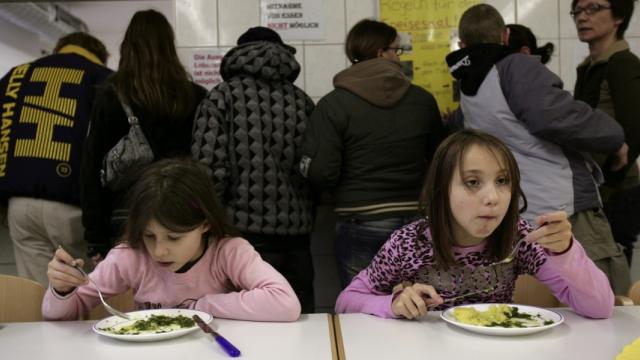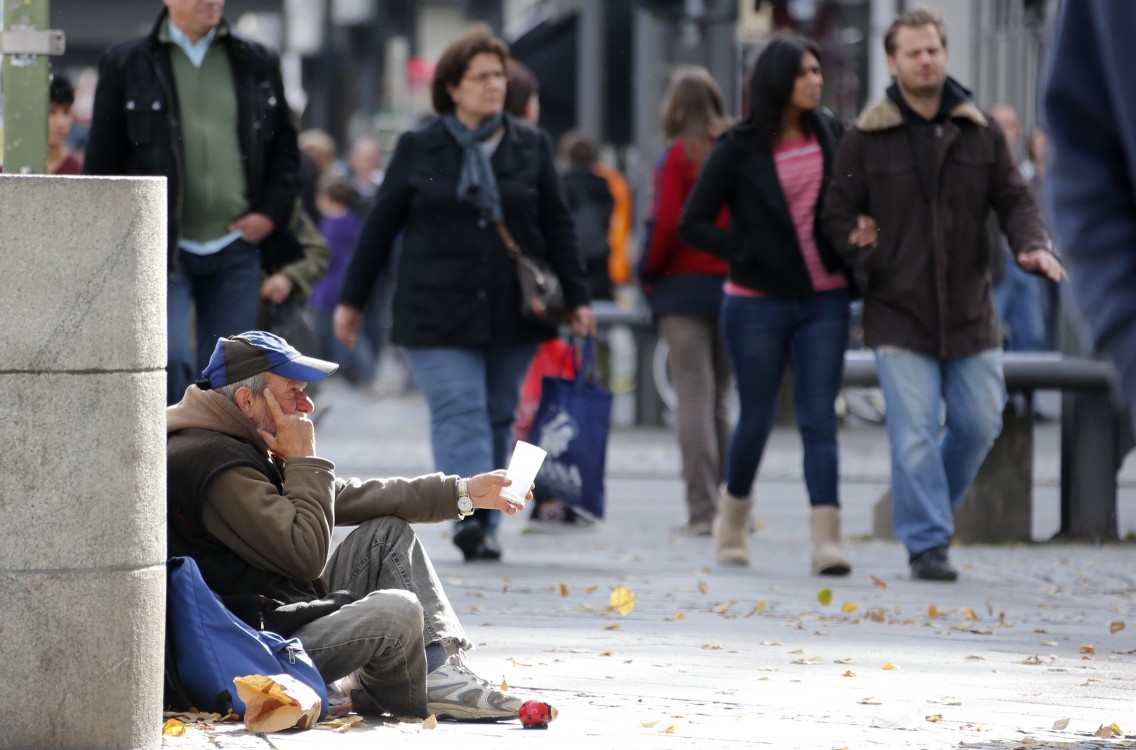
For those living in poverty in Germany, the dream of socioeconomic advancement all too often remains unfulfilled, a new study published on Monday found.
The latest study from the Hans Böckler Foundation found that the percentage of Germans living in poverty rose from 11 percent in 1993 to 15.3 percent in 2013. Those living in poverty earned less than 60 percent of the median income.
"The longer a poverty situation persists, the stronger its impact on everyday life," said the study's author Dorothee Spannagel.
In the years between 1991 and 1995, 58 percent of Germans in poverty rose to a higher income bracket, the report noted.
However, data gathered from nearly 20 years later indicates that it is more difficult for people to advance their socioeconomic status, and fewer people managed to escape poverty status. Half of the people who were considered poor in 2009 were still poor five years later in 2013.
The lower middle class's chances of advancement had also declined, while their risk of slipping into poverty rose somewhat – despite Germany's relatively good economic situation.
Children who are born into poverty are less likely to advance to another socioeconomic status the longer they remain in poverty, the Hans Böckler Foundation noted.
In hardly any other country does a child's educational success depend so much on the situation and origins of their parents, researchers noted. The maximal education level achieved by those who remained in poverty was a secondary school diploma.
The researchers called on politicians to support those in poverty by providing more vocational training and career counseling.
"The goal must be to provide such people with long-term, secure full-time employment," urged the Hans Böckler Foundation.
3 WAYS TO SHOW YOUR SUPPORT
- Log in to post comments

















